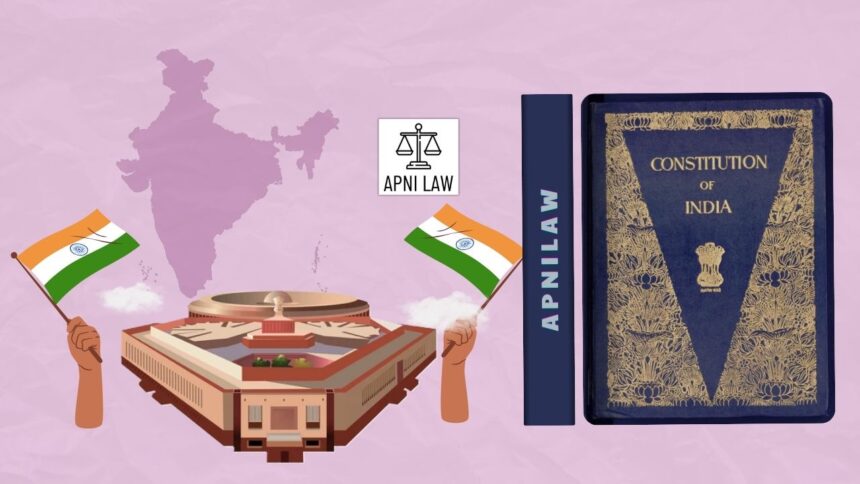Introduction
The S.R. Bommai v. Union of India (1994) case is one of the most significant judgments in Indian constitutional history. It transformed the understanding of Article 356 and reshaped the relationship between the Centre and the States. Before this decision, Article 356 was often used to dismiss state governments on political grounds. The Supreme Court’s verdict changed that, introducing judicial checks and protecting the spirit of federalism, which is now recognized as part of the basic structure of the Constitution.
Background of the Case
The story began in Karnataka. S.R. Bommai, the Chief Minister at the time, was dismissed by the Governor, who claimed that Bommai had lost his majority in the Assembly. The Governor did not allow a floor test, where the majority could be proven democratically. Instead, he recommended President’s Rule under Article 356, and the President accepted it.
Similar incidents occurred in other states like Nagaland, Meghalaya, Madhya Pradesh, Rajasthan, and Himachal Pradesh, where elected governments were dismissed without solid evidence. The dismissed leaders challenged these decisions in the Supreme Court, arguing that the Centre had abused Article 356 for political advantage. The Court decided to examine the limits of the President’s power and the meaning of federalism in the Indian context.
Understanding Article 356
Article 356 allows the President of India to impose President’s Rule in a state if it is believed that the state government cannot function according to the Constitution. During this period, the state government is suspended, and the Union government takes over.
While this provision was meant for emergencies, it became a tool of political control. Between 1950 and 1994, Article 356 was used nearly 90 times, often to remove governments run by opposition parties. The Bommai case changed this by setting strict guidelines to prevent misuse.
Key Questions Before the Court
The Supreme Court had to answer some critical questions:
- Can the President’s decision under Article 356 be reviewed by the judiciary?
- Is federalism a fundamental part of the Constitution?
- Should a state government’s majority be tested on the floor of the assembly or decided by the Governor?
- What are the limits of the President’s discretion under Article 356?
The Supreme Court’s Verdict
In 1994, a nine-judge bench of the Supreme Court delivered a landmark verdict. The Court held that the President’s power under Article 356 is not absolute. The satisfaction of the President can be examined by the judiciary to prevent misuse. If the proclamation is found unjustified or politically motivated, the Court can strike it down.
The Court also ruled that the majority of a government must be tested on the floor of the assembly, not decided by the Governor’s personal opinion. Dismissing a government without such a test would be unconstitutional.
Importantly, the judgment declared that federalism is part of the basic structure of the Constitution, which no government can alter or destroy.
Major Principles Established
The S.R. Bommai judgment introduced key principles that continue to shape Indian democracy. It gave federalism real meaning, ensuring that states have autonomy and that the Centre cannot act arbitrarily. It also emphasized secularism as part of the Constitution’s basic structure.
The Court made it clear that the President’s decision is not beyond review and that elected governments cannot be dismissed without proper justification. This judgment transformed Article 356 from a political weapon into a constitutional safeguard.
Impact on Federalism in India
The judgment strengthened India’s federal character. It established that while the Union government holds certain powers, it cannot interfere with state governments at will. This decision created a balance where unity and diversity coexist.
After the Bommai ruling, the misuse of Article 356 declined sharply. Governments, both at the Centre and in the States, became more cautious in recommending or approving President’s Rule. The case also empowered the judiciary to ensure that constitutional morality remains intact.
Significance of the Case
The Bommai case reshaped the idea of federalism in India. It reinforced democratic accountability, judicial review, and constitutional balance. The verdict strengthened the idea that democracy in India must function through cooperation, not domination.
The Court also extended its reasoning to include secularism, holding that any state government acting against secular principles can be legally dismissed. This made the Constitution stronger and more inclusive.
Relevance in Modern India
Even decades later, the Bommai judgment remains relevant. It serves as a warning against central overreach and upholds the autonomy of state governments. The case continues to guide judicial review in situations where President’s Rule is imposed.
For instance, in Arunachal Pradesh (2016) and Uttarakhand (2016), the Supreme Court cited the Bommai case while restoring dismissed state governments. This proves that the principles laid down in 1994 still protect Indian democracy today.
FAQs
1. What was the main issue in the S.R. Bommai case?
The main issue was whether the President’s Rule under Article 356 could be imposed arbitrarily and whether such proclamations were open to judicial review.
2. What did the Supreme Court decide in this case?
The Court ruled that the President’s satisfaction under Article 356 is not final. The judiciary can review it, and the majority of a government must be proven on the floor of the House.
3. Why is the Bommai judgment important for Indian federalism?
The judgment declared that federalism is part of the basic structure of the Constitution. It stopped the Centre from misusing its power and preserved state autonomy within a united India.
Conclusion
The S.R. Bommai v. Union of India judgment marked a turning point in Indian constitutional law. It prevented the misuse of Article 356, strengthened judicial oversight, and preserved the federal balance that defines India’s democracy.
By declaring federalism as part of the basic structure, the Supreme Court ensured that the unity of India rests on cooperation and respect, not in control. Even today, the Bommai case stands as a reminder that the Constitution, not politics, must guide power in a democracy.
For any specific query call at +91 – 8569843472








